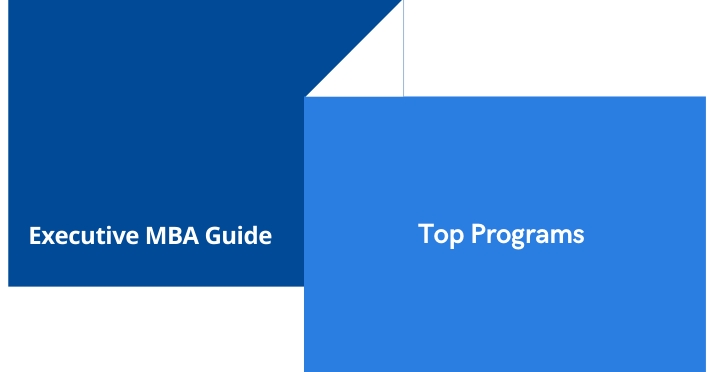


“Never settle for anything less than your best.”
-Brian Tracy
You don’t have to agree with this statement. Being easily satisfied isn’t necessarily a bad quality – it ensures good sleep and less aggravation for one.
But if you lean on the side of becoming the best you can be, read on.
After becoming a Manager, some may think they have arrived! Unfortunately for someone who like you, nothing less than Mark Zuckerberg’s “I am CEO Bitch!” visiting card will cut it.
You don’t have to agree with this statement. Being easily satisfied isn’t necessarily a bad quality – it ensures good sleep and less aggravation for one.
An MBA to ‘Bridge’ the Gap for Non-Business Aspirants
But if you lean on the side of becoming the best you can be, read on.
After becoming a Manager, some may think they have arrived! Unfortunately for someone who like you, nothing less than Mark Zuckerberg’s “I am CEO Bitch!” visiting card will cut it.

So how do you get there?
Well, a good Executive MBA program can be a quick ticket to this destination.
Have a look at the top Executive MBA programs across different countries and get enrolled anywhere at your convenience.
Also Read – IIMB’s Executive General Management Programme Welcomes 50th batch on June 22, 2019
The best part about the top tier Executive MBA programs is that you don’t need to leave your high paying jobs and your senior manager titles. You don’t need to put on the brakes on your career in order to get retrained. After over 10 years of working in stressful jobs, you might already be good at multi-tasking and time management. Use this to your advantage, and add a new activity to your list – getting one of the best Executive MBA program on your resume.
An EMBA course is not for freshers or career changers. It is strictly for senior managers who wish to upgrade their knowledge and management skills and rise higher in their current profiles, often at their current company. An EMBA program will give your career a massive boost and prepare you for senior roles in your organization.
Also Read – ESMT Berlin MBA Offers More Flexibility, Program Duration Extended by 2 Months
With over 10-20 years of work experience below their belt, the typical EMBA participant is between 30 and 40 years of age and handling a role like Assistant Vice President or General Manager.
Such participants are at the cusp of senior management roles and an EMBA gives such candidates the credentials and knowledge they need to head into roles like Vice-President, Executive Vice-President and CEO and other leadership roles.
The best part of pursuing an Executive MBA? You don’t have to incur any career gap for taking up an EMBA course. Since it is meant for working professionals, the classes of an EMBA course are scheduled around the weekends, making it easy for students to manage both their work and studies.
A Full-Time MBA and an Executive MBA (EMBA) differ on major parameters including class structure, target student profile, work experience, MBA experience, cost, eligibility criteria, the learning environment, and of course, the post-MBA goals.
The good bit is that an EMBA program doesn’t lead to a career gap the way a full-time MBA does and ensures continuity in a professional’s career and paychecks!
How To Beat Stress And Maintain Good Health During MBA Program
But if you are looking for a career change, then the EMBA program is not for you. An EMBA is not as immersive and rigorous as a regular full-time MBA program due to its part-time nature. Students don’t stay on campus, or undertake joint projects everyday or interact with each other on a daily basis. Interaction with faculty is constrained by the far lesser time spent on campus. The learning outcomes are therefore more attuned to a ‘top-up’ on existing skills rather than a full recharge!
An EMBA program is designed for experienced professionals who are want to develop knowledge and skills in their particular field or industry. The average age of a candidate applying for an EMBA course is 38 years, with an average work experience of around 14 years.
Whereas, in the case of a full-time MBA program, professionals with work experience of 3-7 years usually apply. These people want to pursue a management role and are looking for a change in their career track in terms of role/function, industry or geography. The average age of the applicants in a full-time MBA course is about 28 years, who have an average work experience of 4-5 years.
Read Executive MBA vs MBA
There is a difference in top EMBA ranking tables by the Economist, QS, Financial Times, World Report and US News. While comparing different EMBA programs, one needs to look into different ranking tables, as they are based on different methodologies. If the performance of a particular school is consistent in each ranking, it is very likely that its EMBA program is one among the world’s best institutes.
To give clear assistance in identifying the best EMBA programs, at your convenience, we try to compare the major EMBA rankings.
The Economist considers certain all-rounder determinants in various EMBA programs for their ranking table. This includes
The Financial Times’ considers the determinant of salary spike that impacts the program in its methodology of ranking.
QS’ Ranking considers
University of Oxford Said’s Business School
Rankings:
IESE Business School
Rankings:
TRIUM EMBA
Rankings:
HEC Paris EMBA
Rankings:
The EMBA-Global Asia program
Rankings:
How To Get Maximum Out Of MBA Networking Events
Tsinghua-INSEAD EMBA
Rankings:
Kellogg-HKUST EMBA
Rankings:
Besides these EMBA Programs, there are other reputed schools that are not listed in the above ranking table. In order to find the best schools, you will need to do further research on different EMBA programs as per your preferences.
Read related posts:
To give you the best B-Schools for an EMBA in different countries we looked at the Best Executive MBA rankings published by Financial Times (FT), BusinessWeek, Wall Street Journal, U.S. News among others.
The list we have culled from these lists is however not a ranking and is simply an enumeration of some of the better-known programs in each geography that you could consider. The best executive MBA programs in USA, UK, France, and across the world are broken down by geography below:
| Western Ontario (Ivey) | Canada |
| Queen’s | Canada |
| INSEAD | France |
| IE Business School | Spain |
| IESE Business School | Spain |
| IMD | Switzerland |
| London Business School | UK |
| Oxford (Said) | UK |
| Chinese Univ. Hong Kong | Hong Kong |
| ISB (PGPMAX) | India |
| INSEAD (ILPSIE) | India |
Looking for one year full-time MBA programs in India and wondering why they don’t feature here? Simply because, these are regular full-time MBA programs and not Executive MBA . Continue here for more clarity on this:
| Pennsylvania (Wharton) | USA |
| Chicago (Booth) | USA |
| Northwestern (Kellogg) | USA |
| Columbia | USA |
| New York (Stern) | USA |
| UCLA (Anderson) | USA |
| Michigan (Ross) | USA |
| Cornell (Johnson) | USA |
| Texas-Austin (McCombs) | USA |
| Southern Cal (Marshall) | USA |
| UNC (Kenan-Flagler) | USA |
| Duke (Fuqua) | USA |
| Washington (Olin) | USA |
| Emory (Goizueta) | USA |
| Ohio State (Fisher) | USA |
| Maryland (Smith) | USA |
| SMU (Cox) | USA |
| Thunderbird | USA |
| UC-Irvine (Merage) | USA |
| Vanderbilt (Owen) | USA |
| Rice (Jones) | USA |
| Illinois-Urbana Champaign | USA |
| Notre Dame (Mendoza) | USA |
| UC-Berkeley (Haas) | USA |
| Arizona State (Carey) | USA |
| Boston University | USA |
| Rutgers University | USA |
| Georgetown (McDonough) | USA |
| Cornell/Queen’s | USA |
| Texas-Dallas | USA |
| Minnesota (Carlson) | USA |
| Texas A&M (Mays) | USA |
| Fordham | USA |
| Pittsburgh (Katz) | USA |
| Georgia (Terry) | USA |
| Temple (Fox) | USA |
| Rochester (Simon) | USA |
| Tulane (Freeman) | USA |
| Georgia Tech (Scheller) | USA |
| SUNY-Buffalo | USA |
| Denver (Daniels) | USA |
Also read: